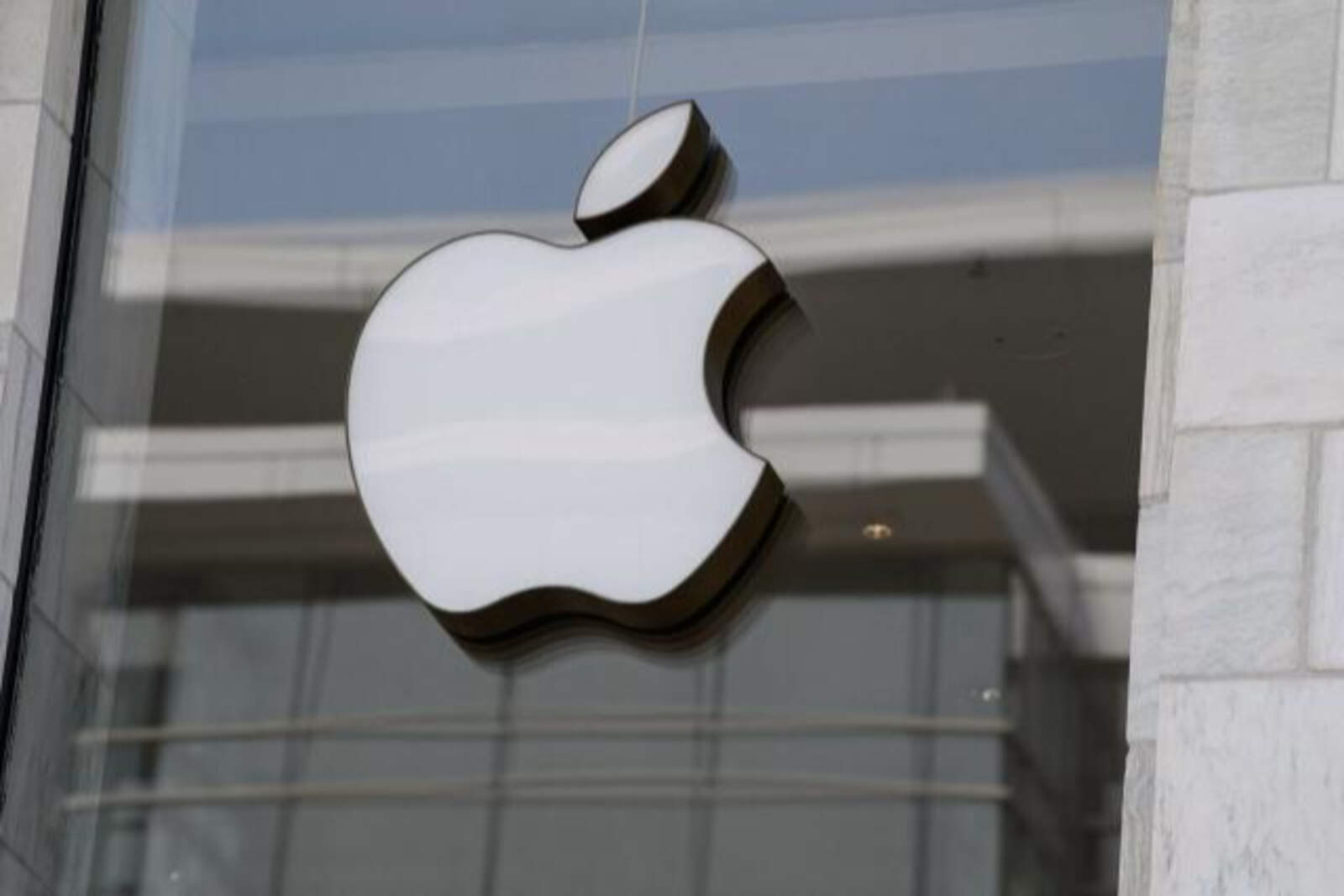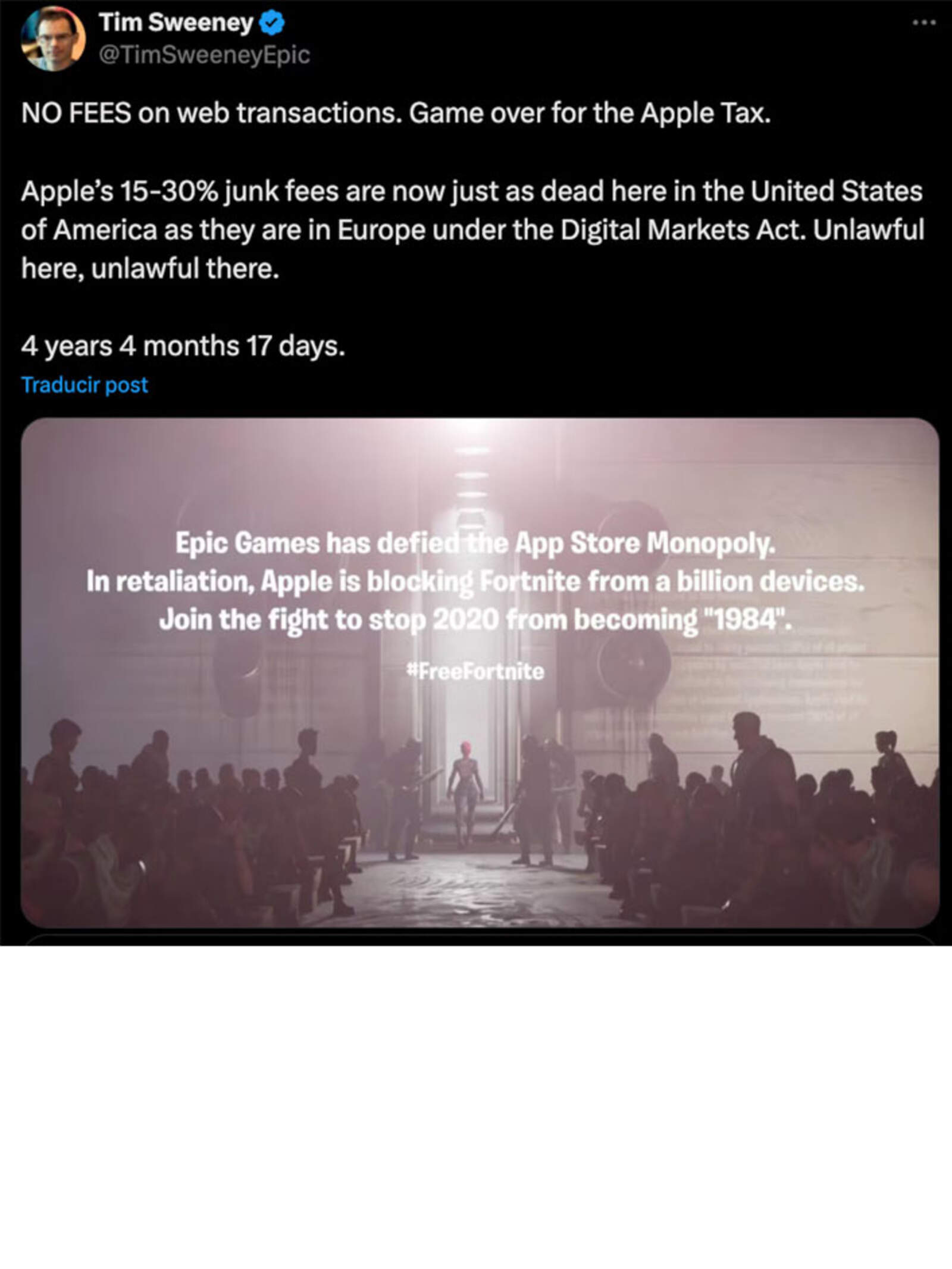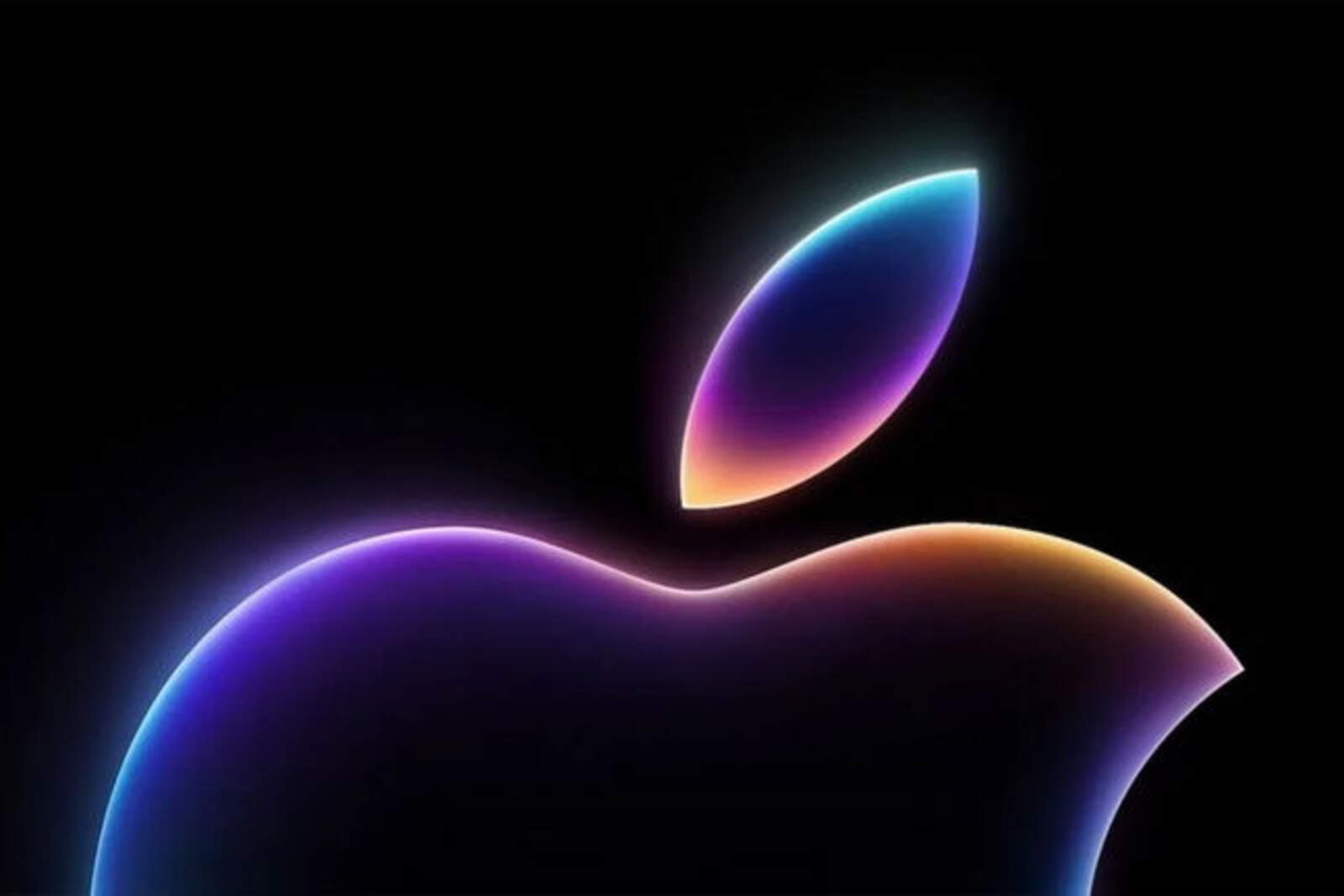Epic Games achieved a ruling against Apple in the long battle over commissions within the App Store.
Judge Yvonne Gonzalez Rogers issued a resolution that shakes Apple's business model. According to the ruling, the company violated a previous 2021 court order that prohibited its anticompetitive practices.

Apple imposed new barriers and 27% commissions on external purchases, contradicting the court's instructions. Now, it must allow alternative payment options without charging that surcharge.
An 80-page document with serious accusations
The judicial document states that Apple intentionally frustrated the objectives of the previous ruling. The case was elevated to the U.S. Attorney's Office, which could initiate a criminal case.
The text accuses Alex Roman, Apple's vice president of finance, of lying under oath. It also mentions that Tim Cook purposely ignored the demands of Justice.

Epic Games celebrates victory after nearly 5 years of battle
Tim Sweeney, CEO of Epic, celebrated the measure on social media. "The Apple tax is over," he wrote in a tweet, where he also highlighted that the 15% to 30% commissions are now "illegal in the United States and Europe."
The executive recalled that "4 years, 4 months, and 17 days" have passed since the conflict began. The battle started in 2020 when Epic sued Apple and Google for restricting external payments and applying policies that stifled competition.











